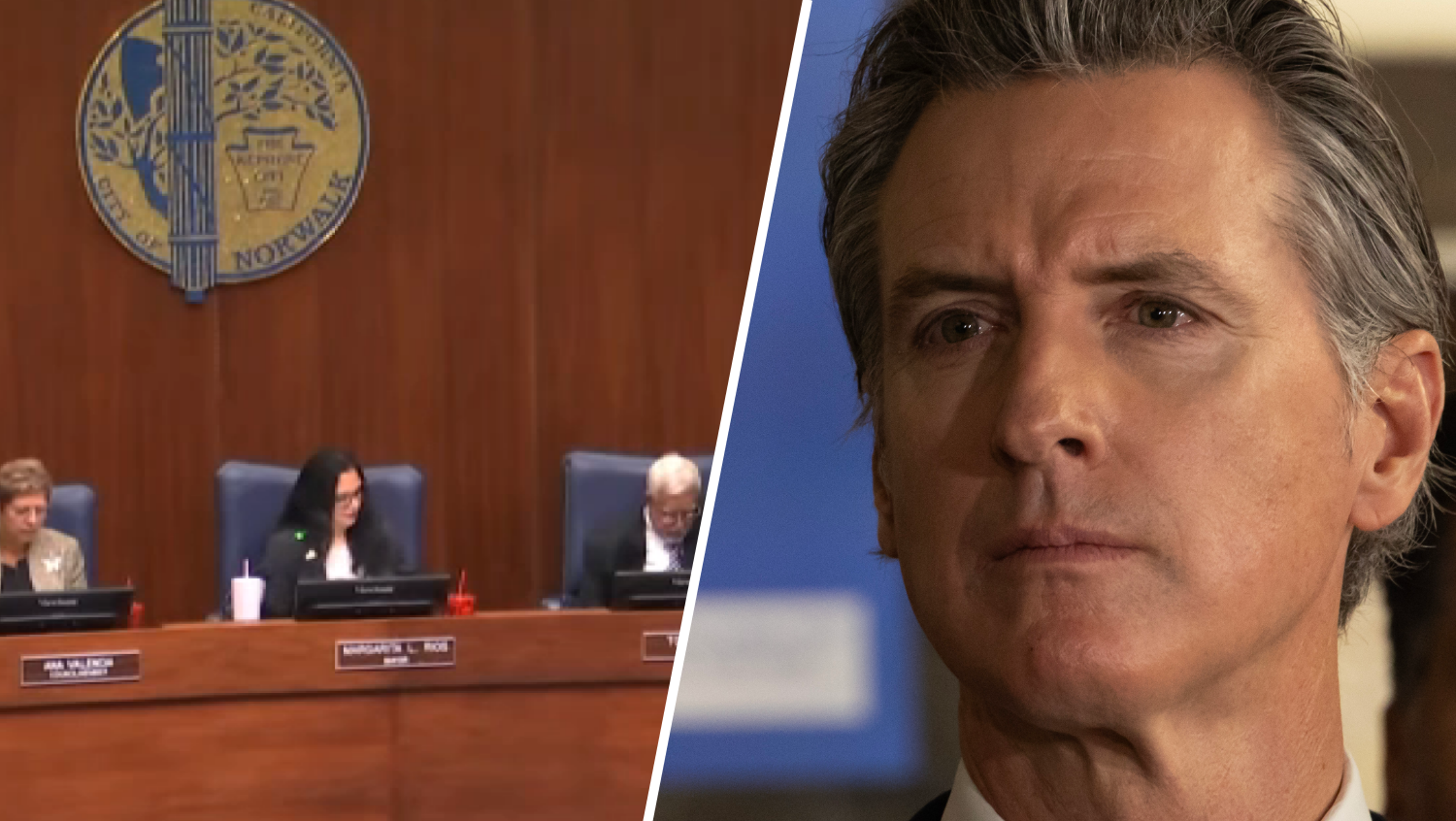
The state's legal action against the city of Norwalk over its 2024 ordinance putting a moratorium on new homeless shelters and other housing projects can move forward, a judge ruled Wednesday while also dismissing the City Council as a defendant.
"Petitioners are correct that there is a significant public interest in ensuring that the city does not enact an ordinance that violates state law," Los Angeles Superior Court Judge James Chalfant wrote in a tentative ruling that he finalized after hearing arguments Tuesday.
Stream Los Angeles News for free, 24/7, wherever you are.
However, the judge also was critical of the state's conduct in the litigation.
"Petitioners charged into court and insisted on invalidation of the moratorium without alleging any facts of imminent and significant hardship," the judge wrote while giving the city 30 days to file an answer to the petition.
Get top local stories in Southern California delivered to you every morning with NBC LA's News Headlines newsletter.
In their court papers, attorneys for the city called the litigation filed by the state on behalf of the Department of Housing and Community Development a "red herring" petition.
"Petitioners seek to invalidate and stay a moratorium that is already stayed and is not currently being enforced by the city," the city's lawyers contended.
The state in October officially declared Norwalk to be in violation of state housing requirements, cutting off state funding to the city for housing and anti-homelessness projects.
The City Council originally approved an ordinance in August, putting a 45-day moratorium on emergency shelters, single-room occupancy units, supportive and transitional housing.
That prompted Gov. Gavin Newsom in September to warn the city that it was in violation of state law, and he urged
the city to reverse direction.
The City Council, however, doubled down on its stance, voting to extend the moratorium for another 10 months. But in October, the council voted to stay enforcement of the moratorium to try and find a solution with the state.
Norwalk passed its moratorium by citing the Housing Crisis Act, which allows cities and local governments to issue bans on housing facilities when there is "an imminent threat" to public health and safety.
State officials rejected the contention that any threat exists.
According to the state, Norwalk has issued permits for 175 housing units during the current "housing element cycle," which is only 3.5% of its assigned allocation of 5,034 units required to ensure that communities have enough housing.
"Despite receiving several warnings, the city of Norwalk has refused to repeal its unlawful ban on new supportive housing for our most vulnerable residents,'' Attorney General Rob Bonta said when the case was filed Nov. 4.
"Enough is enough. Every city and county in California has a legal obligation to help solve our homelessness crisis. We have not, and will not hesitate, to ensure that everyone with the power to approve or disapprove housing takes their duties seriously,'' Bonta added.
The state contends the city's ban on shelter projects violates multiple statutes, including the Housing Crisis Act, Affirmatively Furthering Fair Housing and the Housing Element Law.
In a statement, the City of Norwalk wrote:
"During yesterday’s decision by the Los Angeles County Superior Court, the judge’s statement—highlighting the absence of any imminent or significant hardship—echoed the City of Norwalk’s consistent position. This is not an act of defiance but rather an effort to pause, listen, and find common ground with the State. The City of Norwalk will continue to work with the State’s Department of Housing and Community Development to attempt to find a common ground to address the important issue of homelessness, but keeping at the forefront the protections of our residents and the City’s efforts to preserve local control over land uses within the City of Norwalk’s jurisdiction. The irony, of course, lies in the fact that the State is pushing for action against a moratorium that is already on hold, protesting enforcement where none exists. The further challenge is the State fails to recognize that the City is a partner in this process who cannot be removed from the discussion on how the homeless housing issue is to be addressed in the City. The City of Norwalk remains committed to transparency, ready to work with the State of California and their agencies to develop thoughtful, sustainable policies that honor both the law and the well-being of our residents.



